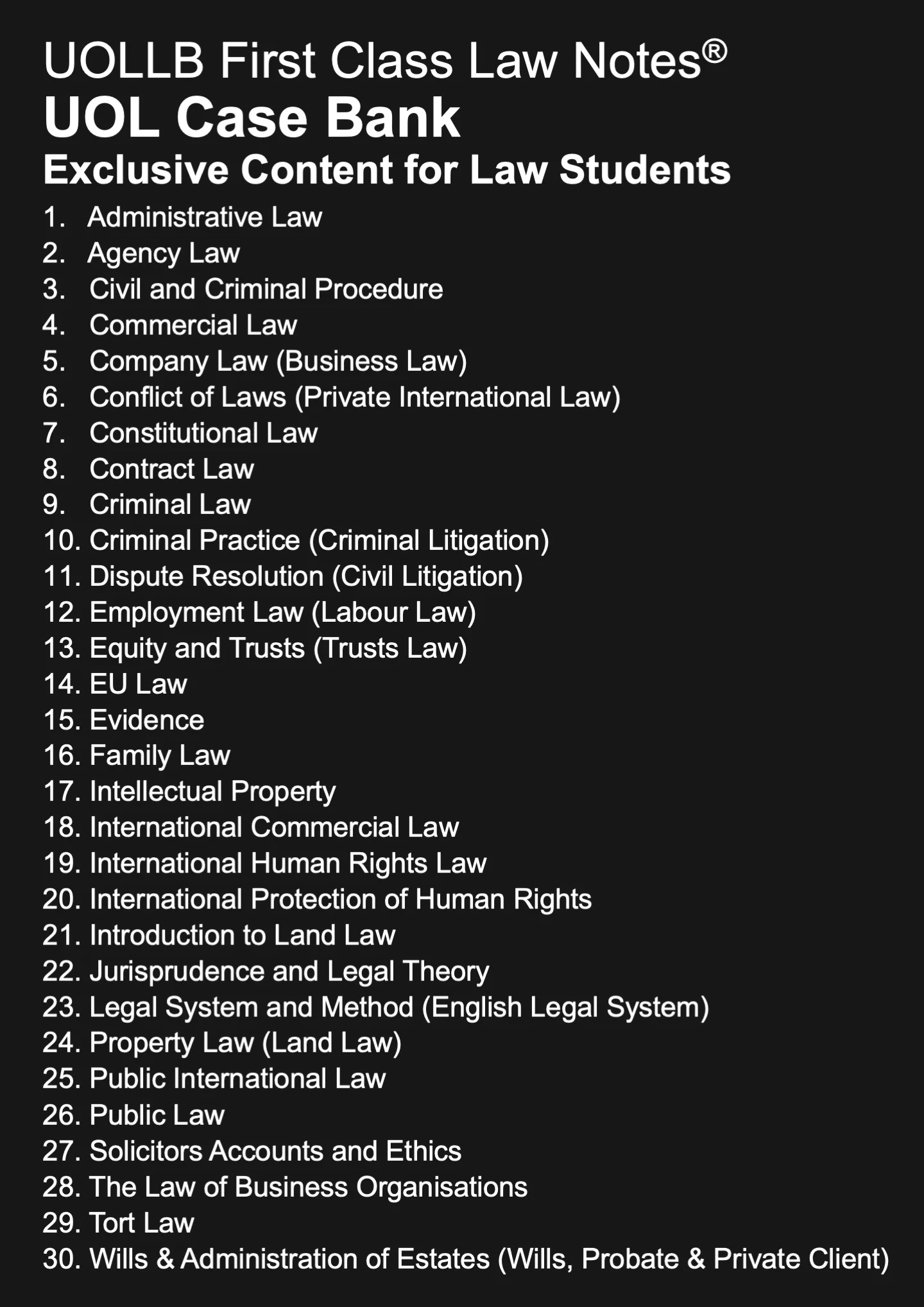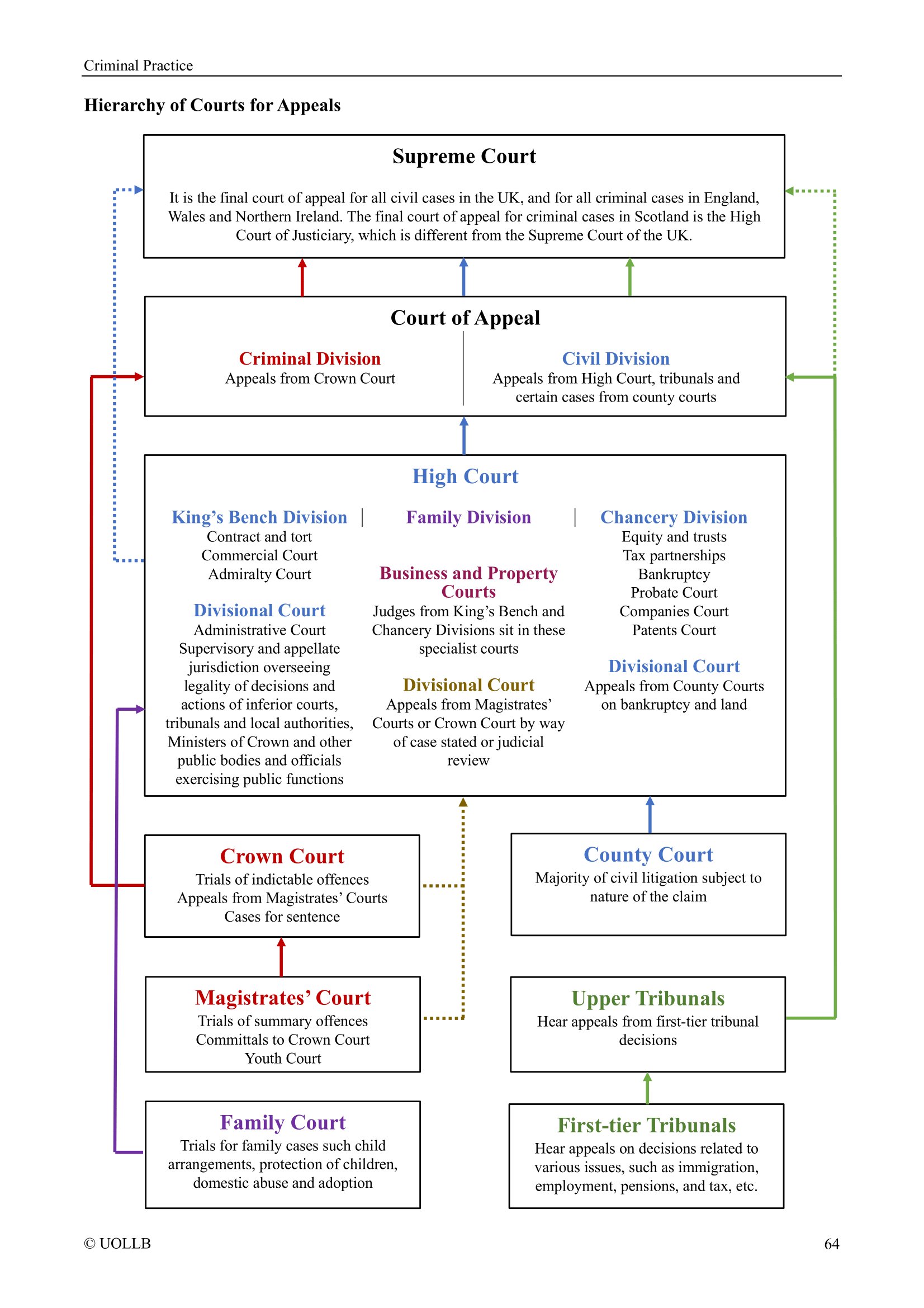What Will You Study in Bar Training Course?
Share
The Bar Training Course, also known as Bar Practice Course (BPC), Bar Vocational Course (BVC), or Bar Vocational Studies (BVS), and formerly known as the Bar Professional Training Course (BPTC), is a rigorous and comprehensive training program designed to prepare aspiring barristers for the demanding and dynamic legal profession.
This course serves as a bridge between academic studies and the practical application of law, equipping you with the essential skills, knowledge, and ethical grounding necessary to excel as advocates. You will typically study the following modules required by the Bar Standards Board (BSB) for Call to the Bar. Here is an overview of the modules:
Advocacy: Cross Examination
This module focuses on developing the skills necessary for effective cross-examination in legal proceedings. You learn techniques for questioning witnesses, challenging their evidence, and eliciting desired information to support their case. Emphasis is placed on developing persuasive and tactical questioning strategies.
Advocacy: Examination in Chief
This module concentrates on the skills required for conducting an examination in chief, which involves questioning witnesses called by the advocate. You learn techniques for eliciting relevant and favourable evidence from witnesses to support their case. The module covers effective questioning methods and strategies to present evidence in a clear and coherent manner.
Advocacy: Submissions
This module examines the art of making persuasive submissions or closing arguments. You study techniques for presenting their case, summarising evidence, and persuading the court or tribunal to adopt their client's position. You also develop skills in structuring submissions, presenting legal arguments, and addressing counterarguments effectively.
Criminal Litigation, Evidence and Sentencing
This module provides an in-depth understanding of criminal litigation, evidence, and sentencing procedures. You study the criminal justice system, including the roles of key participants, stages of criminal proceedings, rules of evidence, and sentencing principles. The module covers practical skills such as preparing and presenting criminal cases, examining witnesses, and making sentencing submissions.
Civil Litigation and Dispute Resolution
This module focuses on civil litigation, covering the process of resolving disputes through the court system. You learn about various stages of civil litigation, including pre-action protocols, pleadings, disclosure, trial preparation, and alternative dispute resolution methods such as mediation. The module provides an understanding of the civil justice system and the practical aspects of handling civil cases.
Conference Skills
This module focuses on developing effective communication and negotiation skills required during client conferences. You learn how to conduct client interviews, gather relevant information, analyse legal issues, and provide appropriate advice. The module covers techniques for building rapport with clients, active listening, and effective communication to understand and address client needs.
Legal Drafting
This module focuses on developing proficiency in drafting legal documents commonly used in legal practice. You learn to draft pleadings, statements of case, legal opinions, contracts, and other legal documents. The module emphasises clarity, precision, and accuracy in drafting, and provides guidance on structure, style, and effective use of language.
Professional Ethics
This module explores the ethical responsibilities and professional conduct expected of barristers. You study the Bar Standards Board Code of Conduct and related professional rules and regulations. The module covers ethical dilemmas, conflicts of interest, client confidentiality, and the obligations of a barrister towards the court, clients, and the legal profession.
Opinion Writing
This module focuses on developing skills in providing written legal opinions to clients. You learn to analyse complex legal issues, apply legal principles, and provide reasoned and well-structured advice. The module covers techniques for identifying legal issues, conducting legal research, and effectively communicating legal analysis and recommendations.
Legal Research
This module equips you with the essential skills for conducting comprehensive and effective legal research. You learn various research methodologies, techniques for locating and analysing legal sources, and critical evaluation of legal authority. The module covers online research tools, case law, statutes, regulations, and academic legal journals.
It is important to note that providers of the BTC can name the modules differently and arrange their contents flexibly. It is essential to keep in mind that the BTC is regulated by the BSB, so it may undergo changes at the beginning or during the year.
This course serves as a bridge between academic studies and the practical application of law, equipping you with the essential skills, knowledge, and ethical grounding necessary to excel as advocates. You will typically study the following modules required by the Bar Standards Board (BSB) for Call to the Bar. Here is an overview of the modules:
Advocacy: Cross Examination
This module focuses on developing the skills necessary for effective cross-examination in legal proceedings. You learn techniques for questioning witnesses, challenging their evidence, and eliciting desired information to support their case. Emphasis is placed on developing persuasive and tactical questioning strategies.
Advocacy: Examination in Chief
This module concentrates on the skills required for conducting an examination in chief, which involves questioning witnesses called by the advocate. You learn techniques for eliciting relevant and favourable evidence from witnesses to support their case. The module covers effective questioning methods and strategies to present evidence in a clear and coherent manner.
Advocacy: Submissions
This module examines the art of making persuasive submissions or closing arguments. You study techniques for presenting their case, summarising evidence, and persuading the court or tribunal to adopt their client's position. You also develop skills in structuring submissions, presenting legal arguments, and addressing counterarguments effectively.
Criminal Litigation, Evidence and Sentencing
This module provides an in-depth understanding of criminal litigation, evidence, and sentencing procedures. You study the criminal justice system, including the roles of key participants, stages of criminal proceedings, rules of evidence, and sentencing principles. The module covers practical skills such as preparing and presenting criminal cases, examining witnesses, and making sentencing submissions.
Civil Litigation and Dispute Resolution
This module focuses on civil litigation, covering the process of resolving disputes through the court system. You learn about various stages of civil litigation, including pre-action protocols, pleadings, disclosure, trial preparation, and alternative dispute resolution methods such as mediation. The module provides an understanding of the civil justice system and the practical aspects of handling civil cases.
Conference Skills
This module focuses on developing effective communication and negotiation skills required during client conferences. You learn how to conduct client interviews, gather relevant information, analyse legal issues, and provide appropriate advice. The module covers techniques for building rapport with clients, active listening, and effective communication to understand and address client needs.
Legal Drafting
This module focuses on developing proficiency in drafting legal documents commonly used in legal practice. You learn to draft pleadings, statements of case, legal opinions, contracts, and other legal documents. The module emphasises clarity, precision, and accuracy in drafting, and provides guidance on structure, style, and effective use of language.
Professional Ethics
This module explores the ethical responsibilities and professional conduct expected of barristers. You study the Bar Standards Board Code of Conduct and related professional rules and regulations. The module covers ethical dilemmas, conflicts of interest, client confidentiality, and the obligations of a barrister towards the court, clients, and the legal profession.
Opinion Writing
This module focuses on developing skills in providing written legal opinions to clients. You learn to analyse complex legal issues, apply legal principles, and provide reasoned and well-structured advice. The module covers techniques for identifying legal issues, conducting legal research, and effectively communicating legal analysis and recommendations.
Legal Research
This module equips you with the essential skills for conducting comprehensive and effective legal research. You learn various research methodologies, techniques for locating and analysing legal sources, and critical evaluation of legal authority. The module covers online research tools, case law, statutes, regulations, and academic legal journals.
It is important to note that providers of the BTC can name the modules differently and arrange their contents flexibly. It is essential to keep in mind that the BTC is regulated by the BSB, so it may undergo changes at the beginning or during the year.























































